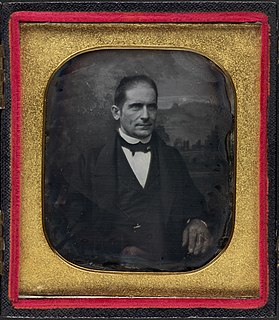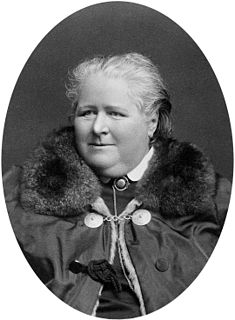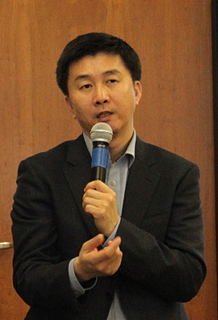A Quote by Henry Clarke Wright
The moment a man claims a right to control the will of a fellow being by physical force, he is at heart a slaveholder.
Related Quotes
No man may initiate the use of physical force against others. No man-or group or society or government-has the right to assume the role of a criminal and initiate the use of physical compulsion against any man. Men have the right to use physical force only in retaliation and only against those who initiate its use. The ethical principle involved is simple and clear-cut: it is the difference between murder and self-defense.
The necessary consequence of man's right to life is his right to self-defense. In a civilized society, force may be used only in retaliation and only against those who initiate its use. All the reasons which make the initiation of physical force an evil, make the retaliatory use of physical force a moral imperative. If some "pacifist" society renounced the retaliatory use of force, it would be left helplessly at the mercy of the first thug who decided to be immoral. Such a society would achieve the opposite of its intention: instead of abolishing evil, it would encourage and reward it.
So immense are the claims on a mother, physical claims on her bodily and brain vigor, and moral claims on her heart and thoughts, that she cannot ... meet them all and find any large margin beyond for other cares and work. She serves the community in the very best and highest way it is possible to do, by giving birth to healthy children, whose physical strength has not been defrauded, and to whose moral and mental nature she can give the whole of her thoughts.
A state is absolute in the sense which I have in mind when it claims the right to a monopoly of all the force within the community, to make war, to make peace, to conscript life, to tax, to establish and disestablish property, to define crime, to punish disobedience, to control education, to supervise the family, to regulate personal habits, and to censor opinions. The modern state claims all of these powers, and, in the matter of theory, there is no real difference in the size of the claim between communists, fascists, and Democrats.
So long as men desire to live together, no man may initiate the use of physical force against others. . . . When a man attempts to deal with me by force, I answer him by force. It is only as retaliation that force may be used and only against the man who starts its use. No, I do not share his evil or sink to his concept of morality: I merely grant him his choice, destruction, the only destruction he had the right to choose: his own.
Power invariably elects to go into the hands of the strong. That strength may be physical or of the heart or, if we do not fight shy of the word, of the spirit. Strength of the heart connotes soul-force. Let it be remembered that physical force is transitory, even as the body is transitory. But the power of spirit is permanent even as the spirit is everlasting.
In the new science of the twenty-first century, not physical force but spiritual force will lead the way. Mental and spiritual gifts will be more in demand than gifts of a physical nature. Extrasensory perception will take precedence over sensory perception. And in this sphere woman will again predominate.
People who are hungry don't have the heart to think about others. Sometimes they can't even care for their own family. Hunger quashes man's will to help his fellow man. I've seen fathers steal food from their own children's lunchboxes. As they scarf down the corn they have only one overpowering desire: to placate, if even for just one moment, that feeling of insufferable need.
Secrecy is the keystone to all tyranny. Not force, but secrecy and censorship. When any government or church for that matter, undertakes to say to its subjects, "This you may not read, this you must not know," the end result is tyranny and oppression, no matter how holy the motives. Mighty little force is needed to control a man who has been hoodwinked in this fashion; contrariwise, no amount of force can control a free man, whose mind is free. No, not the rack nor the atomic bomb, not anything. You can't conquer a free man; the most you can do is kill him.






























